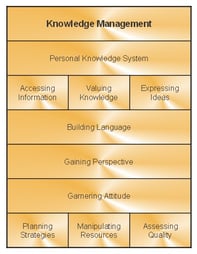Published on
Lifelong Learning Isn’t Only for Adults

Life used to be simpler, made up of three stages—childhood (including adolescence; going to school and living at home), adult life (where you’re working, raising a family and moving into your own home) and finally retirement.
All of this has changed. In the past, people may have taken a course or trained in a specific career, such as accountancy or carpentry. But today, it is common for people to have three careers or more, re-training several times as they move from job to job, career to career and even industry to industry.
Therefore, education no longer applies solely to young people. We offer courses globally and are finding that more adults in their 30s, 40s, 50s and 60s are taking courses to start new careers and businesses.
Awards systems and apprenticeships are often aimed solely at younger people leaving school and in early adulthood. I am involved in a few committees that help run such awards.
I have noticed, though, that the definition of youth to some is being younger than 23 years old. Other definitions have crept up to under 35, pointing out that some people do not begin a career in their industry until that age.
Given how often people now want/need to change careers, should awards and qualifications for people starting a new career refrain from being age-specific? Perhaps apprenticeships and courses should be offered to anyone who wants a new career.
Youth unemployment rates tend to be higher, and Government predictions suggest that they could rise even further given the current situation with COVID-19.
So, how do we take account of this higher number of unemployed youth? Young people used to be told to complete a degree or diploma and be rewarded with a guaranteed job for life. That message is no longer true for many young people. I hear some employers complain that inexperienced young people expect to start at the top. This isn’t the reality, but sometimes, the belief that it is it may contribute to youth unemployment.
Do we need to change our attitudes toward learning? Are schools, colleges and universities giving unrealistic expectations to their students of what to expect in their first job?
We need to learn from the past and move into the future.
Previously, people expected to start at the bottom and work hard to move up the career ladder. Perhaps this is a value that we need to reinforce in education today.
Moving into the future, we also need to recognise that the world is changing. The modern world changes on an almost daily basis, and new skills and training are consistently required in all jobs. Therefore, adults may also wish to retrain or start a new business.
Education needs to become more flexible and relevant.
We all need to recognize two things:
First, learning and training is a lifelong process, as people want to improve and/or change their careers.
Second, education and training should no longer be age-specific but available to anyone who wants to learn something new.
Disclaimer: Embedded links in articles don’t represent author endorsement, but aim to provide readers with additional context and service.
Author Perspective: Administrator



